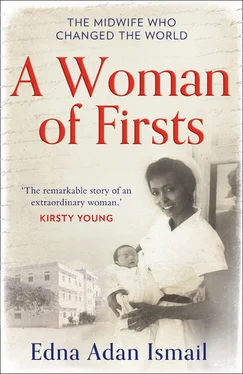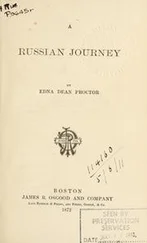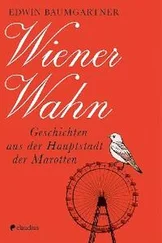From an early age I began to appreciate that boys and girls were different, and by that I mean that girls only ever played in small groups in their own homes or back yards up until the age of about eight and the older ones were rarely spotted outside. Instead they were expected to remain inside learning how to be a good wife. That wasn’t for me, so I had no choice but to play on my own until my father erected a long rope swing in our yard, the only one in the neighbourhood, to which local boys would flock. I loved running around with these fellow children of government officials. One of these was Hassan Abdillahi Walanwal Kayd, who was two or three years older than me, taller and more handsome than the others, and one of those I was determined to keep up with. Little did I know then how our paths would collide for much of my life.
Unfortunately, most of them were embarrassed to be seen playing with a girl and chased me away whenever I tried to join in. The only exception was when it came to foraging. Near our house was a little garden that surrounded the grave of some prominent person, and it had a mighty gob tree. Gob means noble and these noble trees not only look majestic but give us shade, food, shelter and wood. The yellow berries are like sweet little cherries so the boys and I would clamber over the wall and throw stones to bring down those delicious fruits.
Neighbours and relatives would often complain to my mother that they had seen me running barefoot in the sandy streets again. ‘How can you allow that, Marian?’ they’d berate. ‘It’s not proper. A girl isn’t brought up to run wild outside and play with boys.’ But my mother couldn’t control me and my father didn’t intend to. Mum would simply chastise me constantly with, ‘Where have you been, Edna?’ Or, ‘Where are you going now? Playing with the boys again, I suppose? Ugh. Well, at least put on some shoes!’ I hated wearing shoes and one of my arguments against them was that spiders and scorpions frequently crawled inside so I was safer without. This meant that my feet were permanently dirty and grazed (along with my knees) and a daily pastime was asking my mother or a servant to pull acacia thorns from my soles.
The neighbourhood girls who’d heard their mothers complain about my inappropriate behaviour soon followed suit, insultingly calling me a ‘ wiilo ’, which means tomboy. My response was to fight them, which only got me into more trouble. If I couldn’t play with the boys I’d go off exploring and looking for animals in the thorn bushes, only returning to the house to eat some papaya, help myself to some tiin or prickly pear from the yard, or to water from the tank. Nature had always fascinated me and I knew every little lizard, squirrel, frog, rabbit or beetle that lived around our property. On hot languid days in the dry season I liked to sit in the shade of a tree, inhaling the scent of jasmine and listening to the chatter of the yaryaro birds. When it was cooler I’d chase the mini tornados known as sand devils that danced down our street. I was repeatedly warned against the hyenas that came at night looking for food, and wasn’t supposed to stray too far.
My parents never once gave me any pocket money to spend but they did buy me toys, usually blonde blue-eyed dolls, which were fun for a short while. I also had a wooden camel on wheels made by a kind British carpenter. I soon grew tired of these playthings, though, because they didn’t move or interact like my cat or my pet goat Orggi or the wild creatures out in the yard. Something that amused me for hours was making drinking glasses from empty bottles, and little lanterns out of old Player’s cigarettes tins, with a kerosene-soaked wick stuffed inside and a hole in the lid for it to poke through. There were severe shortages after the war and many household items were no longer available in the market, so we learned to improvise. The lanterns were easy to make but their wicks smelled even more noxious than the usual paraffin lamps and were a fire hazard, plus they stained Mum’s white walls with black smoke. I much preferred these kinds of activities to peeling onions or potatoes or beating the dust from the rugs.
From the earliest age I longed for a sibling and, although I was thrilled when my brother Farah arrived, I was crushed when I realized that he was too little to play with. Then my mother fell pregnant again. It is only with the wisdom of hindsight that I have come to understand why she chose to have this child at home with a traditional ‘midwife’ rather than in the safety of a hospital run by her husband. In spite of her cosmopolitan upbringing, in the nine years since her marriage to my father she’d remodelled herself into the archetypal Somali housewife who kept close counsel with her female friends and took too great a heed of their scaremongering. ‘Don’t tell your husband when you go into labour,’ they warned her. ‘He will only take you to hospital and put things inside you. The British doctors already killed one daughter and put a scar on Edna’s face. Call us instead. We’ll bring the midwife and she’ll help you deliver naturally at home.’
The morning that Mum’s waters broke she didn’t say a word to Dad as he completed his customary 6 a.m. ablutions, shaved, and slicked back his hair. As the head of the household, he always had priority in the bathroom. While experiencing labour pains, she cooked his laxoox pancakes made from sorghum flour for breakfast, which we smothered in ghee, honey or jam. She waited for him to dress in his regulation white shorts, white shirt, white socks and polished shoes, knowing that he would then walk to work to arrive punctually at 7 a.m. His hospital was really only a series of Army tents around two brick buildings, one of which was the operating theatre, but whenever I could, I’d walk with Dad all the way down the sandy street to the hospital gate, immensely proud of the meticulously dressed man holding my hand who commanded so much respect in our community. The only thing that would tempt me to break from his side was if I saw the local boys running somewhere, then I’d kiss him goodbye and hurtle off in their direction while he laughed.
Back at home that morning, my mother’s labour pains intensified so she summoned her girlfriends as instructed and they called an umulisso , an elderly woman known as a ‘traditional midwife’ who had no nursing training or qualifications. The servants kept me out of the way as I listened in horror to my mother wailing and grunting for hours, wondering what on earth they were doing to her. The ‘midwife’ finally delivered Mum of a healthy baby boy, but then accidentally dropped the slippery baby, killing him instantly when he landed on his head. I was six years old and will never forget my mother’s screams. The women tried to calm her as the midwife wrapped her otherwise perfect baby boy in the tiny blanket that would become his shroud.
‘He’s so beautiful!’ I declared, when I crept into the room and stood over the tiny body in the crib, not much bigger than my doll. ‘Can I keep him?’ Someone pushed me out of the room and told a servant to run to the hospital and tell my father the news. The message Dad received was, ‘Come home and bury your son.’ In the Muslim faith, a body is buried within twenty-four hours of death. As my father knew nothing of the birth he immediately assumed that Farah had been killed in an accident and half-expected to find his mangled body. Running home, a thousand possibilities raced through his mind, he was overwhelmed with relief when – in a house of weeping women – he discovered Farah alive and well, but then shattered to learn that the infant son he didn’t know he had was dead because of the carelessness of an untrained woman.
At such a tender age, I was appalled at the idea of my baby brother being taken away to be buried in the ground, and created quite a scene at the house. ‘Why do you have to take him? Don’t take him away! I want to keep him!’ I cried, until my grandmother Baada pulled me away and the burial proceeded as planned.
Читать дальше












